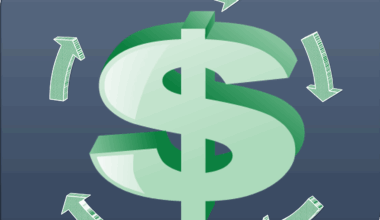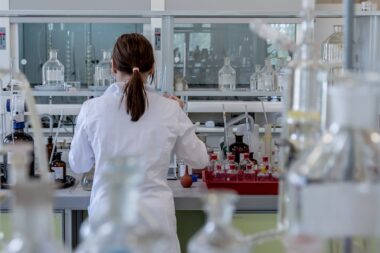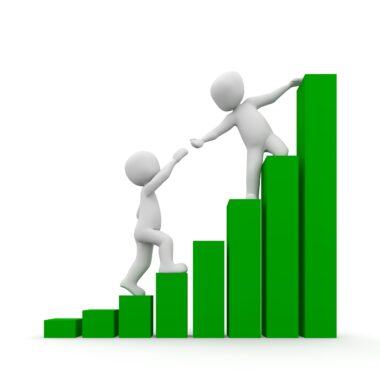Experimental Economics and Its Influence on Policy Making
Experimental economics is a field that studies economic behavior through controlled experiments. It examines how individuals make decisions in various scenarios, providing insights into their preferences, motivations, and interactions. By using both laboratory and field experiments, researchers can analyze how different variables affect economic outcomes. This methodology helps in understanding market behaviors and consumer choices, which are often unpredictable in real-world settings. Experimental economics focuses on the empirical testing of economic theories. One of its key strengths is the ability to replicate experiments to validate findings. This aspect is essential for developing robust economic theories that can be applied to policy-making. For instance, experiments can reveal behavioral biases that traditional economic models might overlook. The insights gained from experimental studies can actively shape public policy. Policymakers can design interventions that encourage desirable behavior, such as increased savings or reduced energy consumption. Such applications show the practical relevance of experimental economics in addressing societal issues effectively. Ultimately, this field combines rigorous scientific methods with policy implications, bridging the gap between theory and real-world applications.
One significant impact of experimental economics is its exploration of behavioral finance. Traditional finance theories assume rationality, but experiments reveal that investors often act irrationally. This irrationality can lead to market anomalies, influencing how policies are crafted. For example, behavioral insights suggest that framing investment choices can significantly affect decisions made by individuals. By understanding how choices are presented, policymakers can guide citizens towards making better financial decisions. Experimental economics highlights the importance of context in decision-making. Immediate social environments can sway economic choices, demonstrating that individual decisions aren’t made in isolation. Furthermore, insights from this field have led to the development of nudges, subtle policy shifts designed to alter behavior without restricting freedom of choice. These nudges are cost-effective and can achieve significant outcomes. For instance, automatically enrolling employees in retirement savings plans has proven to increase participation rates dramatically. As more policymakers recognize the relevance of experimental economics, many are integrating these concepts into the design of social programs and regulations. This shift enhances the efficacy of policies aimed at improving economic well-being.
Applications of Experimental Economics in Public Policy
Experimental economics finds its way into diverse applications within public policy frameworks. Understanding how people respond to incentives can lead to better-designed social programs. Policymakers can analyze different approaches to encourage tax compliance among citizens. Experiments can help determine the most effective methods to foster adherence, enhancing overall public revenue. Additionally, the field contributes to designing effective health interventions. By testing different approaches to health communication, policymakers can understand what messaging resonates best with individuals. This understanding can significantly improve public health campaigns. Moreover, experimental economics aids in environmental policy development. Researchers conduct experiments to explore how people value future environmental consequences, guiding climate change strategies. For instance, experiments have shown how various monetary incentives can lead to increased recycling rates. Understanding population behavior in those contexts allows for precise interventions. The overall goal remains clear: using evidence-based findings to enhance policy effectiveness. Through the lens of experimental economics, policymakers can identify and implement strategies that account for human behavior, ultimately achieving better societal outcomes. This proactive approach to policy-making emphasizes the need for continuous learning from experimental studies.
The evaluation of policy interventions is another significant area where experimental economics plays a pivotal role. Policymakers increasingly utilize randomized controlled trials to assess the impact of their initiatives. These trials serve as rigorous tests of policy efficacy, allowing for data-driven decision-making. For example, assessing educational programs through experiments quantifies their direct effects on student performance. By tracking various metrics, researchers can ascertain what works and what doesn’t. This strategy helps in reallocating resources effectively, ensuring that funding goes to programs with proven success. Additionally, feedback loops installed within these trials enable continual refinement of policy measures. Policymakers can make necessary adjustments based on interim results, fostering an adaptive approach. The dynamic nature of economic environments calls for policies that can evolve. Experimental economics ensures that programs remain relevant and effective. As government agencies embrace such methodologies, there is an unprecedented opportunity for increased accountability and transparency in policy-making. Citizens stand to benefit directly as evidence-based policies translate into improved services and outcomes in their daily lives.
Challenges in Implementing Experimental Economics
Despite its merits, implementing experimental economics within public policy does come with challenges. One primary concern is the external validity of laboratory results. Critics argue that controlled settings may not accurately mimic real-world scenarios, diminishing the applicability of findings. Therefore, researchers should focus on contextualizing results before applying them directly to policy. Moreover, funding for experimental studies can be limited, which often restricts the scope of research. Policymakers must allocate sufficient resources to facilitate comprehensive experiments. There is also a need for collaboration between disciplines, as economic theories must integrate insights from psychology, sociology, and behavioral sciences for holistic understanding. Institutional resistance may arise, where traditional economic models overshadow insights from experimental research. To mitigate this, education campaigns promoting the significance of behavioral insights are crucial. Building awareness among decision-makers ensures that evidence-based policy-making through experimental economics is prioritized. Furthermore, ethical considerations should be addressed while designing experiments that involve human subjects. Transparency and informed consent should guide all research efforts, maintaining integrity within the discipline.
Looking ahead, the future of experimental economics appears promising. With the integration of advanced technology such as online platforms, researchers can reach diverse populations for experiments. This accessibility enhances the reliability of findings, given that larger samples can provide better data representation. Furthermore, the rapid evolution of big data analytics offers new avenues for experimental economics. Policymakers can glean insights from massive datasets combined with experimental findings, yielding innovative solutions. Such strategies are vital, especially when dealing with complex global challenges like poverty and climate change. Moreover, interdisciplinary approaches are expected to flourish. Collaborations among economists, psychologists, and behavioral scientists will deepen the understanding of human behavior. By sharing expertise, these collaborations can yield policy solutions that reflect a comprehensive view of societal challenges. Additionally, a stronger emphasis on communication of research findings will foster knowledge dissemination. Engaging with broader audiences will help implement evidence-based policies effectively. As countries trend towards evidence-backed decision-making, experimental economics will undoubtedly guide the development of policies that reflect societal needs, making it a critical component of future economic governance.
In conclusion, experimental economics has fundamentally influenced how policymakers approach economic challenges. By emphasizing evidence-based interventions, it brings a scientific rigor to policy-making processes. The applications, from behavioral finance to public health interventions, illustrate how economic theories are tested against human behavior. This field highlights the need for continuous adaptation of policies based on experimental findings. As policymakers embrace experimental economics, they become equipped to tackle societal issues more effectively. The integration of behavioral insights into economic models enriches the understanding of human behavior, leading to tailored solutions. Moreover, the emphasis on ethical considerations ensures that the implementation of these experiments respects intrinsic human rights. Addressing challenges in the field will pave the way for novel research opportunities that link theory with real-world applications. The ongoing collaboration between various disciplines, coupled with advancements in technology, will enhance the impact of experimental economics. Ultimately, this approach holds the potential to reshape public policy, ensuring that economic decision-making aligns with citizens’ best interests, demonstrating an engaged and informed society.
Furthermore, the growing recognition of behavioral aspects in economics highlights a shift in conventional thinking, which predominantly centered on rational decision-making. Behavioral economics integrates insights from psychology, thus providing a more nuanced understanding of decision processes. This paradigm shift calls for a reevaluation of existing economic policy frameworks to include findings from experimental studies. For example, many countries are redefining their strategies on consumer protection based on behavioral insights, enhancing public welfare. In developing nations, experimental economics is even more crucial. Many policymakers lack access to substantial data, finding experimental methods as valuable tools to gather insights about local economies. Conducting experiments can unveil important patterns and behaviors that may differ from conventional economic theories, allowing a more tailored approach to local challenges. This local context consideration is particularly vital in shaping effective policy responses. Moreover, international cooperation can amplify the impact of experimental economics on global issues. By conducting cross-border experiments, researchers can share findings that transcend boundaries, addressing pressing issues like migration and health disparities. The collaborative nature of experimental economics encourages a collective approach to finding solutions, enhancing policy effectiveness globally.





